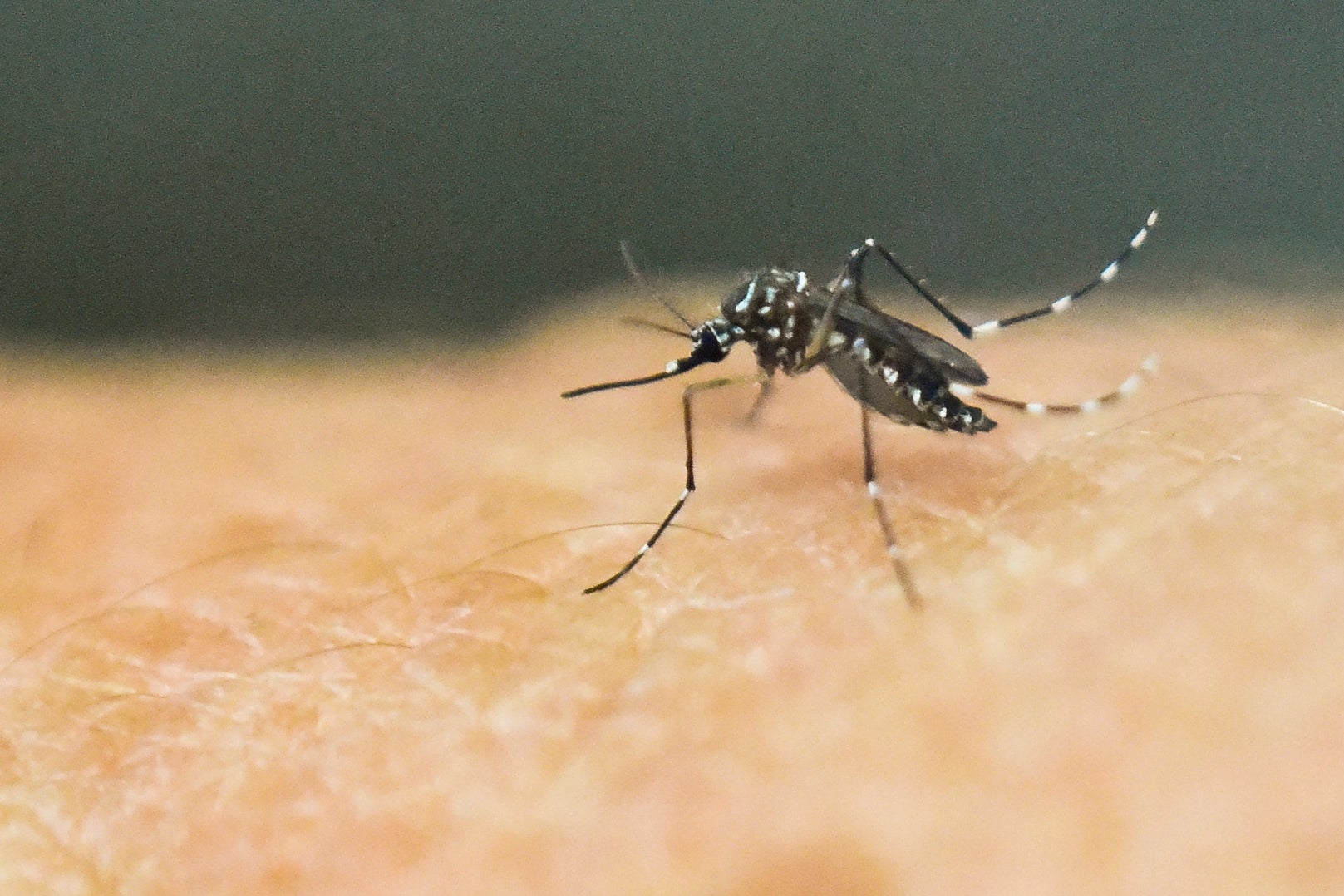How worried should you be about dengue fever as CDC warns of spread?
There have been twice as many cases of the virus in the Americas in the first six months of 2024 than in all of 2023
Your support helps us to tell the story
From reproductive rights to climate change to Big Tech, The Independent is on the ground when the story is developing. Whether it's investigating the financials of Elon Musk's pro-Trump PAC or producing our latest documentary, 'The A Word', which shines a light on the American women fighting for reproductive rights, we know how important it is to parse out the facts from the messaging.
At such a critical moment in US history, we need reporters on the ground. Your donation allows us to keep sending journalists to speak to both sides of the story.
The Independent is trusted by Americans across the entire political spectrum. And unlike many other quality news outlets, we choose not to lock Americans out of our reporting and analysis with paywalls. We believe quality journalism should be available to everyone, paid for by those who can afford it.
Your support makes all the difference.Federal health officials issued a warning over the increased risk of dengue fever around the world — with nearly 10 million reported cases this year in the Americas alone.
The Centers for Disease Control released a health advisory on Tuesday, alerting health providers about the surge in dengue fever cases. The virus is spreading worldwide, but specifically, countries in the Americas have seen a record-breaking number of cases this year.
There have been almost 9.7 million cases in these countries, meaning there have been twice as many cases of the virus in the first six months of 2024 than in all of 2023, which saw 4.6 million cases.
Mosquitoes carry the virus, infecting humans with their bites. Warmer and wetter climates are associated with higher dengue fever transmission, the agency noted. Cases of dengue fever “are likely to increase as global temperatures increase” as the result of climate change as it expands the range for mosquitoes, the CDC warned.
About one in four people infected experience symptoms, the CDC said.
Symptoms usually include a fever paired with other symptoms, such as nausea, vomiting, rash, muscle aches, joint pain, bone pain, pain behind the eyes and headache. The joint pain can be so severe that the virus has also been dubbed “breakbone fever.”
Roughly one in 20 people who contact the virus experience severe symptoms, such as severe bleeding, shock or respiratory distress.

The most at-risk groups are infants, pregnant people, adults over 65 and those with certain medical conditions, the CDC said.
Traveling to certain areas can put you at higher risk of contracting the virus. The CDC identified six US territories and freely associated states that are considered “frequent or continuous dengue transmission” areas: Puerto Rico, American Samoa, the US Virgin Islands, the Federated States of Micronesia, the Republic of Marshall Islands and the Republic of Palau.
Puerto Rico declared a public health emergency in March of this year due to the high volume of cases “during the low dengue season.” From January through June of this year, the US reported 2,241 cases of dengue fever — 1,498 of those were in Puerto Rico.
Outbreaks frequently occur in the Caribbean, Central America, South America, Southeast Asia and the Pacific Islands, according to the CDC. Around 4 billion people live in these high-risk areas.
There is no antiviral treatment for dengue fever but symptoms can be managed with certain medications.
“There are no vaccines recommended for travelers, adults, or persons without a previous DENV infection,” the agency wrote.
However, the CDC’s Advisory Committee of Immunization Practices in 2021 recommended that children aged nine to 16, who have previously been infected and are located in an area of frequent or continuous dengue transmission, take a vaccine called Dengvaxia.
The vaccine is no longer being produced, due to a lack of demand, according to the manufacturer, but available doses will still be administered in Puerto Rico until they expire.

Join our commenting forum
Join thought-provoking conversations, follow other Independent readers and see their replies
Comments